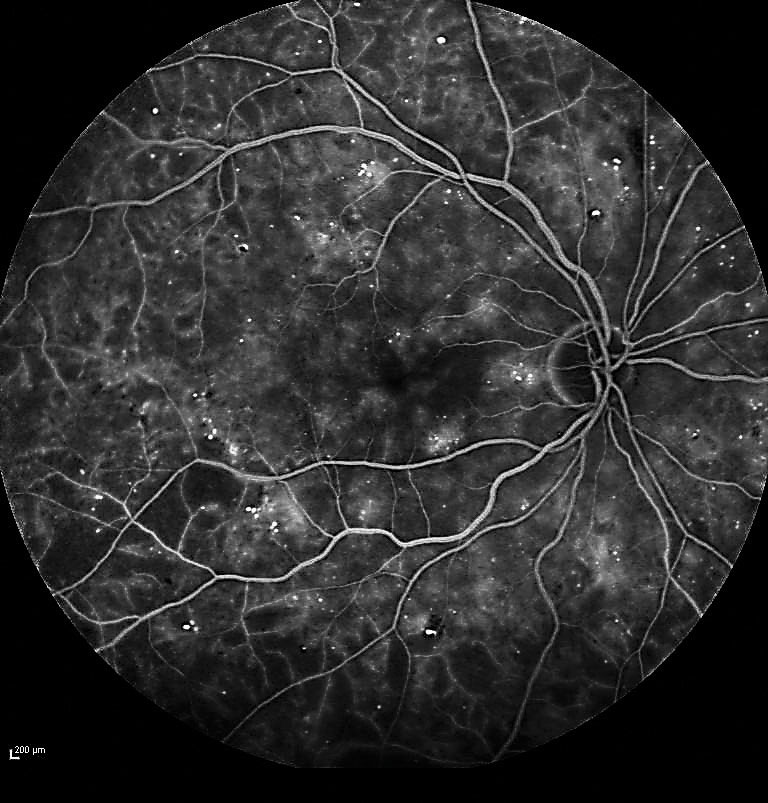 |
| Patients in this study who were deficient in vitamin D were more likely to have more severe DR. (Pictured: NPDR). Photo: Jay M. Haynie, OD. Click image to enlarge. |
Levels of vitamin D have been shown to be associated with diabetic retinopathy (DR), but there have been few to no studies that have examined the relationship between vitamin D and sight-threatening DR and non-sight-threatening DR. Researchers recently aimed to pool associations between vitamin D deficiency and both types of DR. Vitamin D deficiency (25(OH)D < 20ng/mL) significantly increased the odds of sight-threatening DR by a magnitude of 1.8 but was not associated with non-sight-threatening DR risk.
A total of 12 studies reporting on the prevalence of sight-threatening and non-sight-threatening DR vs. a control group of diabetes patients without DR or diabetic macular edema (DME) but with either vitamin D deficiency or circulating 25(OH)D levels were included. Overall, the systematic review included the data from 9,057 participants.
“Our results show high-level evidence that a significantly higher odds ratio is associated with vitamin D deficiency when DME is also included, backed by lower heterogeneity than previous reviews,” the study authors explained in their paper, published in an endocrinology journal.
These results are consistent with previous studies suggesting an inverse relationship between vitamin D level and DR severity.
There are several possible mechanisms to explain the association between vitamin D deficiency and sight-threatening DR, according to the investigators. “For example, several studies have found associations between vitamin D receptor genes and DR,” they explained. “Moreover, vitamin D supplementation has been suggestively linked to improved glycemic control. Further study is warranted to explore the role of the vitamin D receptor in the progression of DR.
“Given the well-reported associations between vitamin D deficiency and other unfavorable outcomes, it is important that vitamin D deficiency is managed appropriately and in a timely manner to reduce the risk of blindness in people with diabetes,” the researchers concluded.
Trott M, Driscoll R, Iraldo E, Pardhan S. Associations between vitamin D status and sight threatening and non-sight threatening diabetic retinopathy: a systematic review and meta-analysis. J Diabetes Meta Disord. May 26, 2022. [Epub ahead of print]. |


